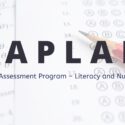The Best Techniques for Improving Your Academic Vocabulary
If you’re writing college essays, conducting research papers, or getting ready to give presentations, it’s helpful to have an effective academic vocabulary. It’s not simply a matter of using “big words”; it’s a matter of using the right words to express yourself clearly, briefly, and professionally. An effective academic vocabulary can make your writing better, improve critical thinking, and have a very positive effect on your academic success.
If you’ve ever searched for assignment help to improve your academic writing, you’ve likely realised how often vocabulary is a stumbling block. Expanding your vocabulary is not an overnight task—it’s a process that requires consistent effort and smart strategies.
This post explores the most effective techniques for improving your academic vocabulary in a way that supports long-term academic success.

Why Academic Vocabulary Matters
Academic vocabulary consists of the technical expressions and words most often adopted by academic writing. Academic language varies from colloquial English in that it involves formal, abstract, and specialized vocabulary particular to the discipline.
The following are the reasons why it is worth the time invested in enhancing academic vocabulary:
- Enhances accuracy and correctness of verbal and written communication.
- Enhances critical thinking, which makes it easier to read and comprehend hard academic texts.
- Enhances academic performance, particularly in essays, research, and test questions.
- Guarantees success in university-level writing and debating.
Scholarly vocabulary is central to the understanding of assignment briefs, reading scholarly text, and responding accordingly. To students in need of assignment help, learning vocabulary traditionally occurs as a burden, pre-requisites.
Successful Strategies to Build Scholarly Vocabulary
Learning academic vocabulary does not necessarily have to be boring. There are efficient methods that can render learning more efficient as well as enjoyable.
1. Read Academic Texts Regularly
Learning academic vocabulary through reading academic texts is perhaps one of the most efficient and organic methods of increasing your academic vocabulary.
Sources to target:
- Journal articles
- Textbooks
- Academic essays
- Research papers
Tips:
- Note down unfamiliar words and phrases.
- Copy them down in a specific vocabulary notebook.
- Guess words from context before checking dictionary definitions.
Why it works:
Learning from context helps the brain retain meaning and use, so it is simpler to remember new words when you write your own academic pieces.
2. Develop a Personal Academic Word List
On the basis of general word lists, develop one specific to your field and course readings.
Instructions:
- Choose words most commonly used in scholarly writings.
- Add definitions, synonyms, and example sentences.
- Organize words by topic or subject category.
Hint: Practice and update this list from time to time to strengthen learning.
3. Utilize the AWL (Academic Word List)
The Academic Word List (AWL) is the most frequent academic words across all subject categories. Learning them can provide you with a remarkable vocabulary boost.
How to use it:
- Learn a few at a time.
- Use them in your writing.
- Read them in research papers to note how they’re utilized.
You can still use assignment help for hard topics, but studying AWL vocabulary puts you in a secure position.
4. Apply Active Learning through Flashcards
Flashcards are among the strongest memory aids. You can use educational vocabulary on index cards or electronic flashcards.
Write on each card:
- The word
- A brief definition
- A sentence example (hopefully academic)
- Synonyms or antonyms
Study tips
- Use the method of spaced repetition.
- Practice regularly in short, focused sessions.
5. Practice with Intentional Vocabulary
Academic writing is not just showing off your vocabulary—also, it gets reinforced.
Tips:
- Practice writing short paragraphs of academic writing with new vocabulary.
- Paraphrase challenging sentences from academic texts in your own words.
- Peer-review other students’ work and highlight good vocabulary use.
Students tend to turn to assignment help when assignment writing becomes overwhelming. But repeated vocabulary practice in the long run can reduce that need.
6. Practice Using Synonyms and Academic Phrases
Academic writing overindulges in variety and precision. Developing your vocabulary of synonyms and supply of hack academic jargon makes sound your writing smoother and professional.
Examples:
Instead of “shows”, use:
- Demonstrates
- Indicates
- Illustrates
Instead of “because”, use:
- Due to
- Owing to
- As a result of
Idea words in phrase bank:
- “It seems that…”
- “It can be said that…”
- “It is worth noting that…”
- “The evidence suggests.”
- “In contrast with earlier findings…”
Repeating these sentences on a regular basis avoids duplication and increases the quality of your academic writing.
7. Note Word Families and Collocations
Knowing how words work in combination can help with fluency and cut down on clunky sentence-building.
Word families:
From “analyse” you get:
- Analysis
- Comprehension
- Analyst
Collocations:
Words which tend to go with each other:
- “Strong argument”
- “Significant impact”
- “Widely accepted”
Recognizing word families and collocations enables you to produce sentences that sound native to an academic setting—a common emphasis in assignment help services.
8. Participate in Scholarly Discussions
Talking is as valuable as reading and writing. Participation in scholarly discussions—class, online discussion, or study group—can cement the application of vocabulary.
Advantages:
- Instant practice of new vocabulary.
- Inference from others’ vocabulary use.
- Confidence in applying vocabulary in varying contexts.
9. Revise and Edit Your Work with a Focus on Vocabulary
It is simple to only worry about form and grammar when you are revising but vocabulary must be attended to as well.
Editing checklist:
- Have you overused the same word?
- Can you substitute any imprecise words with more academic vocabulary?
- Are your word choices suitable for tone and context?
Vocabulary editing will make your final copy show more academic maturity.
Vocabulary Strategies According to Learning Style
We all learn differently. Adapt your vocabulary building strategy to your preferred learning style.
Visual Learners
- Utilize mind maps to link words.
- Colour-code flashcards.
- Watch educational video materials with subtitles.
Auditory Learners
- Listen to educational podcasts that contain transcripts.
- Read words out aloud when learning new words.
- Dictate and drill definitions and model sentences.
Kinaesthetic Learners
- Hand-write words repetitively.
- Play on-line interactive vocabulary games.
- Walk around while learning or use gestures for linking with memory.
Learning methods that work for you make learning vocabulary more effective and less maddening.
Mistakes to Avoid in Developing Academic Vocabulary
It is important to add to your academic vocabulary, but you should do so the right way. Below are some mistakes to shun:
1. Using Words You Don’t Completely Understand
Never stuff essays with difficult words just for the sake of sounding academic. Always make sure that you know what a word means and how it is being used before you use it.
2. Making Writing Too Complex
You should write academically so that you can comprehend. Never complicate things unnecessarily. If you can express your message using a simpler word, use one.
3. Lack of Context
The meaning of a word is context-dependent. Make sure to understand how a word is used in different academic settings so you won’t misuse it or sound awkward.
4. Isolated Word Learning
It is never going to be very effective to learn isolated large sets of words. Try instead for use, sentence use, and word families.
Monitoring Progress with Vocabulary
Checking for improvement keeps you on your toes and ensures that you are headed in the right direction.
Ways to track progress:
- Self-testing: Ongoing small tests via the use of flashcards or computer software.
- Writing assessment: Compare and contrast previous essays with more recent essays—check for vocabulary range and accuracy.
- Peer review: Have peers or teachers review your work with an eye to vocabulary usage.
- Checklist evaluation: Review your list and assess how frequently you’re using strategies such as using synonyms, word families, and academic words.
The more time that elapses and vocabulary becomes second nature, the simpler you’ll find tasks that previously needed assignment help for are to complete.
Conclusion: Build Your Academic Vocabulary the Intelligent Way
Building vocabulary for scholarship isn’t memorizing exaggerating vocabulary—and it’s actually developing the verbal dexterity to think, make arguments, and write a bit above academe. By writing regularly, reading widely, picking up vocabulary from context, and applying strategies into your study flow, you actually can build up your vocabulary—and with it, your scholarship mojo.Although it would be only normal to ask assignment help if presented with significantly challenging assignments or deadlines, good vocabulary short stops dependency in the long term and allows you to progress to more complicated academically challenging tasks.Those in need of vocabulary skills development and shine on academically writing may find aid tools such as Assignment in Need (assignnmentinneed.com) as effective aid in systematic help.
Recommended For You
Best Online Course Learning Platforms
Most Inside
Most Inside offers high-quality recommendations and valuable updates to enhance all aspects of your life, providing premium guidance and enriching experiences.




